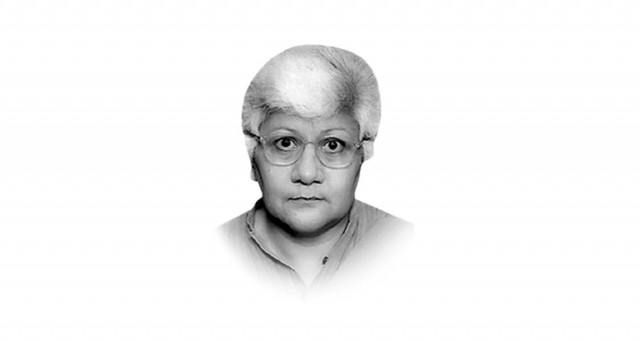Hate thy neighbour

The defence establishment in Pakistan has a major stake in the maintenance of neighbourly hatred which proves highly lucrative. Unless we have an enemy that we can conveniently invoke, demonise and conjure up at will, there would be no justification for the massive defence budget that is routinely passed without debate in parliament. India is a reliable enemy which can be deployed easily when we want to incite fear and a sense of threat among our people. The establishment has to simply spread the idea that this demon lurking on our borders is laced with a deadly arsenal that could wipe us out in minutes, were it not for our eternally prepared and alert armed forces to protect us from annihilation. We must, therefore, give them anything they ask without question if we want to survive. The weapons of mass deception are the means utilised in this psychological and ideological war which elaborates upon the myriad characteristics of our eternal, immutable, permanent enemy. Civilian governments have little stake in hating our neighbour. It is costly. It leaves no money for development without which voters cannot be won. It hampers trade for the businessmen among our ruling classes. It limits economic growth from which our civilian ruling classes benefit. So we had Zulfikar Bhutto adroitly concluding the Simla agreement with Indira Gandhi after the army’s terrible mess in former East Pakistan. We had Benazir Bhutto making friendly overtures to Rajiv Gandhi in an effort to normalise relations before she was stopped dead in her tracks. We had Nawaz Sharif courting Atal Bihari Vajpayee, a Hindu nationalist who rode to Lahore on a bus in 1999 and visited the Minar-i-Pakistan, expressing his acceptance of the Pakistan idea.
The three services chiefs did not come to receive Vajpayee and instead the Kargil operation was launched in the summer of the same year, with Nawaz Sharif ultimately being catapulted out of power. Recently, we saw Asif Ali Zardari reaching out to the Indians in a televised address and Yousaf Raza Gilani concluding talks in a very cordial atmosphere at Sharm El-Sheikh. Yet, S M Krishna came and went without the peace dove flying triumphantly overhead. Blame game and domestic compulsions on both sides aside, each time its is the powerful establishment which derails the process meant to overcome the division of waters, oceans, lands and mountains on either side of the tragic divide.
Published in The Express Tribune, July 24th, 2010.















COMMENTS
Comments are moderated and generally will be posted if they are on-topic and not abusive.
For more information, please see our Comments FAQ